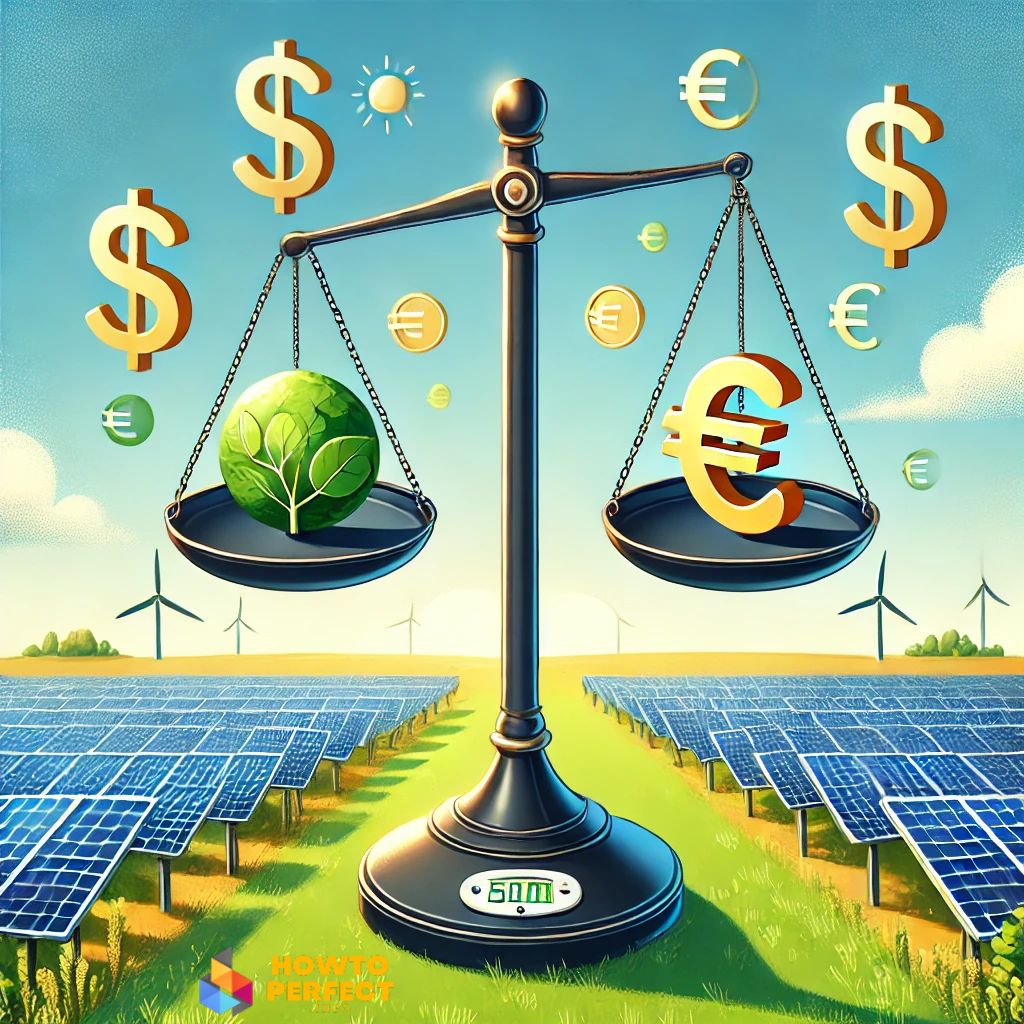- Úvodní stránka
- /
- Photovoltaics
- /
- Maintenance of PV Plants: Long-Term Efficiency & Performance 2024
Maintenance of PV Plants: Uncover the Crucial Role of Regular and Proactive Maintenance in Enhancing the Efficiency and Longevity of Photovoltaic Power Systems. This article offers a comprehensive exploration of the essential maintenance strategies that are vital for optimizing the performance of solar installations. Learn about the importance of routine inspections, timely repairs, and system updates in sustaining optimal energy production and ensuring the resilience of these pivotal renewable energy sources.
Table of Contents
ToggleIntroduction to Photovoltaic (PV) Power Plants
Photovoltaic (PV) power plants stand at the forefront of global endeavors to curtail carbon emissions and transition to more sustainable methods of energy generation. These installations, harnessing the power of the sun, are instrumental in our journey towards a greener future. However, the effective functioning of these solar power plants is not without its challenges. They exhibit certain vulnerabilities that necessitate rigorous monitoring and robust maintenance protocols. The significance of such maintenance practices cannot be overstated, as they are crucial in ensuring the resilience and longevity of these solar installations.
In this comprehensive exploration, we will delve deeply into the critical role maintenance plays in the lifecycle of PV plants. Regular and proactive maintenance is essential not only for preventing potential breakdowns but also for optimizing the overall performance of the plant. By implementing a structured maintenance regimen, operators can significantly extend the lifespan of PV equipment, thereby enhancing the return on investment. This approach includes routine inspections, timely repairs, and updates to the system, all of which are pivotal in maintaining the efficiency and productivity of the plant.
Furthermore, we will investigate the various maintenance strategies employed to maximize energy output and minimize downtime. These practices range from cleaning solar panels to ensure maximum light absorption, to conducting electrical checks and updating software systems for better performance. The article will provide insights into how these practices contribute to sustaining optimal energy production and preventing energy losses due to equipment malfunctions or inefficiencies. Through this discussion, the importance of maintenance in the realm of PV power plants will be highlighted, underscoring its role in supporting sustainable energy solutions.
Proper Planning: The Foundation of a Successful PV Plant's Success
In the realm of photovoltaic (PV) plant operations, planning is not merely a preliminary step but a critical foundation that sets the stage for the plant’s long-term efficiency and viability. The process of planning a PV plant demands meticulous attention to detail and strategic foresight. Central to this is the clear definition of the plant’s intended function and the identification of key operational parameters. This involves a thorough assessment of the plant’s capacity, environmental considerations, and the specific energy demands it aims to fulfill.
For larger-scale installations, enlisting the expertise of a specialist maintenance company is an astute and widely adopted strategy. These companies provide an array of essential services, from preventive maintenance, which proactively addresses potential issues before they escalate, to reactive maintenance, responding swiftly to any operational disruptions. Furthermore, these companies are instrumental in implementing sophisticated monitoring systems that play a pivotal role in the ongoing management of the PV plant.
A critical aspect of this planning phase is determining the specifics of the data that the PV plant will relay to remote monitoring systems. This encompasses a wide range of information, including but not limited to, production metrics, control stages, grid quality assessments, and weather station data. The integration of this comprehensive data allows for a more granular and informed approach to plant management, facilitating prompt and effective decision-making. By prioritizing these elements in the planning stage, PV plant operators can significantly enhance the plant’s performance, ensure its longevity, and maximize its contribution to sustainable energy goals.
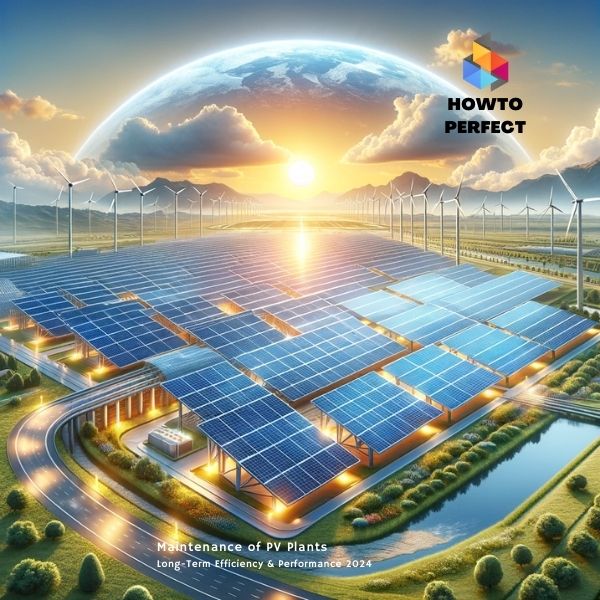
Reactive Monitoring: Swift Response to Non-Standard Events in PV Plant Operations
Continuous monitoring of PV plant operations and expedited responses to deviations from expected performance standards are crucial components of effective maintenance strategies. The role of skilled technicians, equipped with the necessary tools and components, is paramount in ensuring the swift resolution of any operational issues. These professionals are trained to rapidly identify and address problems, thereby minimizing downtime and maintaining the plant’s optimal functionality.
The response times for these interventions are often clearly defined in service contracts, typically measured in hours, emphasizing the importance of prompt and efficient action in maintaining the integrity of PV plant operations. This aspect of maintenance underscores the commitment to reliability and the continuous generation of solar power.
Additionally, technology manufacturers contribute significantly to the maintenance and management of PV plants by providing advanced cloud-based monitoring systems. These systems offer comprehensive oversight and control capabilities, enabling remote tracking of a plant’s performance metrics. They allow for real-time data analysis, identifying any anomalies or inefficiencies quickly. This modern approach to monitoring not only enhances the operational efficiency of PV plants but also supports proactive maintenance efforts, ensuring that PV plants operate at their peak performance levels consistently.
Preventive Maintenance: Strategies for Minimizing Downtime in PV Plants
Routine inspections, meticulously carried out by a dedicated service company, are fundamental in minimizing unplanned downtimes in photovoltaic (PV) plant operations. These comprehensive inspections cover various critical aspects of the plant’s maintenance. Key among these is the mechanical assessment of the plant’s structure, ensuring its integrity and stability. Additionally, tasks such as panel cleaning and sensor maintenance are vital for optimal operation, as they directly impact the plant’s ability to efficiently convert solar energy.
Furthermore, inverter ventilation is checked to ensure the electronic components are operating within safe temperature ranges, preventing overheating and potential failures. Visual inspections of all components are performed regularly, along with specialized techniques such as using a thermal imaging camera to assess the electrical parts. This method helps in identifying hotspots that could indicate potential issues. Panel illumination checks and measurements of electrical parameters are also integral to confirming the system’s optimal performance and energy output.
For rooftop installations, the inspection process extends to examining the roofing and rainwater drainage systems. This is essential to prevent any water damage that could affect both the building and the solar installation. In contrast, for ground-mounted installations, maintaining the surrounding vegetation is a priority to reduce shading on the panels. Proper vegetation management ensures maximum exposure to sunlight, which is critical for the efficiency of the solar panels. Together, these maintenance practices play a crucial role in sustaining the long-term performance and reliability of PV installations.
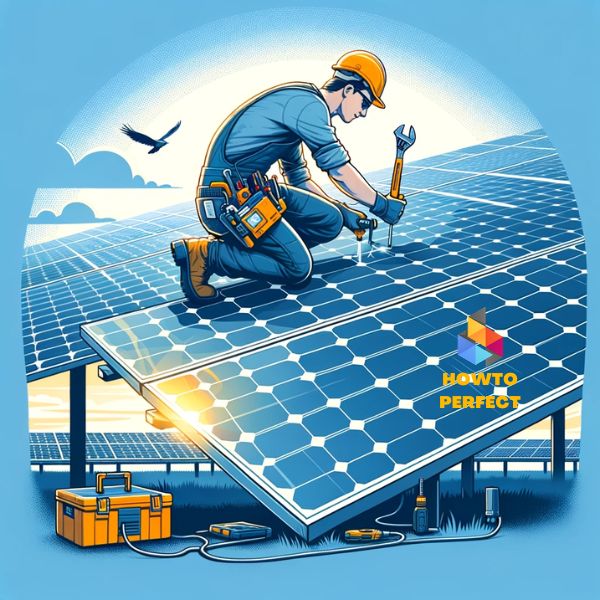
Storage of Spare Components: Ensuring Swift Repairs for PV Plants When Needed
To expedite repairs and minimize downtime in PV plant operations, maintaining an on-hand inventory of spare components is a highly recommended strategy. This proactive approach involves stocking essential items such as inverters, solar panels, and other critical parts within easy reach. By having these components readily available, the time typically required for procurement and delivery is significantly reduced, thus allowing for quicker restoration of operations in the event of a malfunction or damage.
The cornerstones of successful PV project management are optimal care and meticulous planning. Ensuring comprehensive maintenance of PV plants is not just a matter of routine; it’s a strategic necessity. This level of attentiveness in maintenance not only prolongs the lifespan of the equipment but also maximizes its operational efficiency. Implementing such diligent maintenance practices plays a pivotal role in achieving our sustainable energy goals. By keeping PV plants in peak condition, we can make a substantial impact on reducing greenhouse gas emissions, thereby contributing positively to environmental conservation and the global push towards renewable energy sources.
Maintenance of PV Plants
Routine maintenance of PV plants is crucial for preventing potential system failures and prolonging the lifespan of the installation. This includes regular cleaning of solar panels to ensure maximum light absorption, checking and tightening of electrical connections to prevent power loss, and inspecting the structural integrity of mounts and frames. The chapter also emphasizes the importance of monitoring system performance through advanced tools, enabling early detection of any inefficiencies or malfunctions.
In contrast, reactive maintenance focuses on addressing issues as they arise. The chapter details the importance of having a responsive maintenance team, capable of quickly diagnosing and resolving issues. This includes replacing or repairing faulty components such as inverters, connectors, or individual solar cells. The response time is critical in this aspect of maintenance to minimize downtime and loss of energy production.
Additionally, the chapter covers the significance of maintaining a stockpile of spare components, a practice that greatly aids in reducing repair time. Having readily available inverters, panels, and other crucial parts ensures that repairs can be carried out swiftly, thus minimizing operational disruptions.
Lastly, the chapter underscores the overarching goal of PV plant maintenance: to sustain peak performance and maximize energy output. Proper maintenance not only extends the operational life of a PV plant but also plays a key role in achieving sustainable energy objectives and reducing greenhouse gas emissions. By meticulously caring for these solar installations, we ensure their continued contribution to a cleaner, more sustainable future.
Long-Term Efficiency: Maximizing the Potential of PV Plants
„Long-Term Efficiency“ explores the pivotal factors that contribute to the sustained performance and viability of photovoltaic (PV) power plants. This comprehensive section outlines strategies that enhance not only the immediate functionality of PV systems but also their efficiency over extended periods.
The design and implementation of PV systems are crucial for long-term efficiency. Thoughtful design, incorporating the latest in solar technology and materials, lays the foundation for enduring efficiency. This includes selecting the appropriate solar panels, inverters, and other components that best match the environmental conditions and energy needs of the installation site.
Preventive maintenance is a vital component of PV system management. Regular inspections and maintenance are essential to identify and address potential issues before they escalate into major problems. Tasks such as cleaning solar panels to maximize light absorption, monitoring system performance, and updating software are integral to maintaining optimal operation.
The chapter also delves into the role of technological advancements in sustaining long-term efficiency. It discusses the adoption of emerging technologies like smart grid integration and energy storage systems, which bolster the adaptability and resilience of PV systems. These innovations enable more efficient energy use and storage, optimizing the utility of the solar power generated.
Furthermore, the importance of skilled personnel in upholding long-term efficiency is highlighted. A team of experienced and trained professionals is crucial for ensuring that the PV system is well-maintained and performs optimally throughout its lifecycle. Their expertise is essential for navigating the complexities of PV system operation and making informed decisions to maintain the plant’s efficiency.
In summary, „Long-Term Efficiency“ offers a detailed perspective on the practices, technologies, and expertise necessary for maintaining and enhancing the efficiency of PV plants, solidifying their role as a sustainable and dependable energy source for the future.
Epilogue: Mastering PV Plant Maintenance for Long-Term Efficiency and Success
In the final chapter, we consolidate the insights and strategies pivotal to the Maintenance of PV Plants, underscoring their significance in achieving Long-Term Efficiency and overall success. This comprehensive overview encapsulates the best practices, technological advancements, and expert knowledge necessary for optimizing PV Plant Operations.
The cornerstone of any successful photovoltaic (PV) power plant is its maintenance protocol. Regular and meticulous maintenance ensures not only the smooth running of the plant but also its resilience and adaptability in the face of evolving technology and environmental conditions. The chapter emphasizes that maintenance is not a reactive measure but a proactive strategy integral to the plant’s lifecycle. From routine inspections to the management of spare parts and the deployment of skilled personnel, each aspect plays a critical role in maintaining the plant’s operational integrity and efficiency.
Furthermore, the chapter delves into how Long-Term Efficiency is intrinsically linked to the plant’s design, implementation, and ongoing maintenance. It highlights that efficiency is not a static achievement but a continuous pursuit, necessitating constant evaluation and adaptation of maintenance practices. By leveraging the latest technological innovations and prioritizing sustainable operation methods, PV plants can significantly contribute to renewable energy goals while ensuring their commercial viability.
In conclusion, the success of a PV Plant relies heavily on the quality and consistency of its maintenance. The insights provided in this chapter serve as a guide for operators and stakeholders in the PV industry, offering a roadmap to maximize the performance and longevity of photovoltaic power plants. By embracing these practices, we can ensure that PV plants not only operate at their optimal capacity but also contribute significantly to the global shift towards sustainable energy solutions.
Explore More: Expert Insights on PV Maintenance at GreenBuddies
For further expert insights and detailed information on the maintenance and implementation of photovoltaic solutions, we invite you to continue your exploration at GreenBuddies‘ dedicated blog page. Visit article Maintenance of PV plants: The key to long-term efficiency and performance
to deepen your understanding of the intricacies and best practices in the field of PV technology.
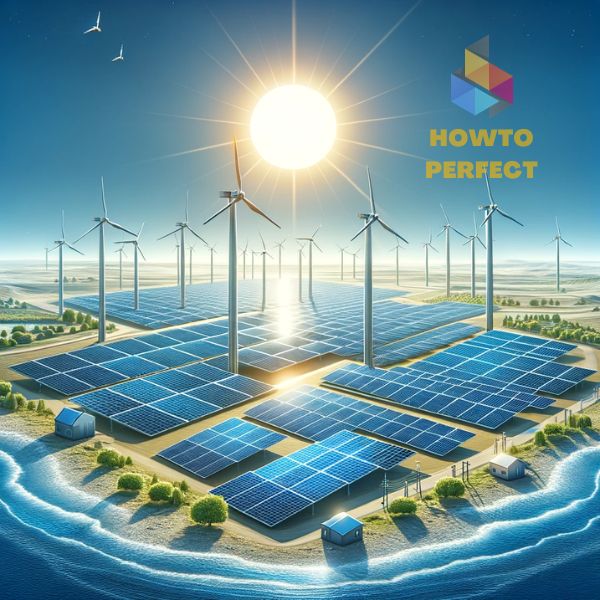
Further Reading: Balancing Cost and Efficiency in PV Solutions
For additional comprehensive information on balancing cost and efficiency in PV solutions, be sure to read the detailed article available at PV Solution: Balancing Cost, Efficiency, and Sustainability in Solar Power. This resource offers valuable insights into optimizing photovoltaic systems for maximum effectiveness.
Case Studies and Real-World Applications
Showcasing Successful PV Solution Implementations
GreenBuddies, renowned for their specialization in PV construction and EV charging, stands as a testament to the successful implementation of PV solutions in a variety of real-world scenarios.
Boasting a remarkable achievement of completing over 1000 MWp of PV plants in the last five years, GreenBuddies has proven their adeptness in managing large-scale projects with efficiency and precision. Their involvement spans a diverse array of projects, encompassing development, financing, and construction of solar projects throughout Europe. The team’s expertise in identifying prime locations for solar power facilities plays a pivotal role in optimizing both the placement and performance of these installations.
A key highlight in their portfolio is the collaboration with PVI GmbH, a notable developer of solar solutions. This partnership reflects GreenBuddies‘ dedication to innovating within the solar energy sector. Their proficiency in EPC contracts enables them to offer comprehensive turnkey solutions, covering everything from design to the supply of components and construction. They have a particular strength in executing large-scale rooftop PV installations. This collaboration materialized in the successful completion of a 4.15 MWp PV plant in Klagenfurt at the end of 2022, followed by a framework agreement for additional rooftop PV projects.
GreenBuddies also excels in the operations and maintenance of PV plants, an essential element in maintaining long-term efficiency and optimal performance. Their strategy incorporates remote monitoring, supervision, and control, ensuring that PV plants consistently operate at their highest capability.
The case of GreenBuddies eloquently illustrates the crucial role that expertise, comprehensive planning, and diligent maintenance play in the effective implementation of PV solutions. Their work vividly demonstrates the versatility and potential of PV technology in making significant contributions to the field of sustainable renewable energy.
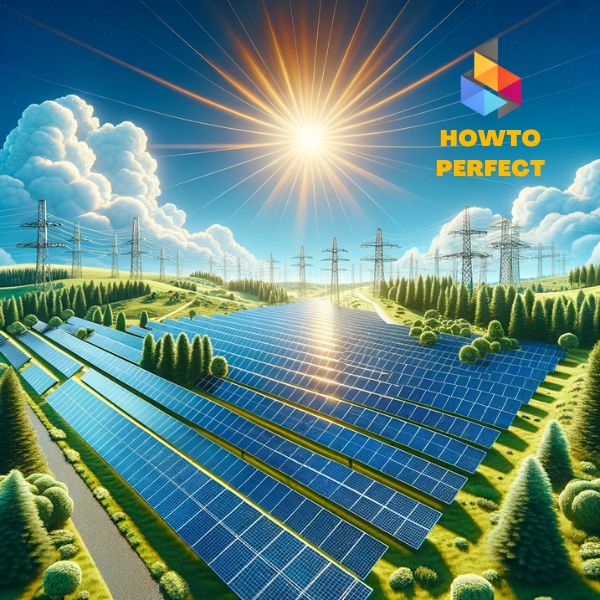
Conclusion: Key Takeaways from the Exploration of PV Solutions The future of PV solutions in renewable energy
In conclusion, the journey towards implementing the perfect PV solution involves a comprehensive understanding of the various aspects that influence its performance, sustainability, and value. From considering the size, location, and cost of the system, to keeping abreast of the latest advancements in PV materials and technology, each element plays a vital role in maximizing the benefits of solar energy. Furthermore, choosing the right provider, one that not only offers quality products and services but also demonstrates expertise and commitment to customer satisfaction, is crucial in ensuring the long-term success of your solar energy investment.
The future of renewable energy, particularly solar power, is bright and full of potential. With ongoing innovations making PV solutions more efficient and cost-effective, and a growing awareness of the environmental and economic benefits they offer, solar energy stands at the forefront of sustainable development. As we move forward, the adoption of PV solutions is not just an environmental imperative but also a practical choice for energy independence and resilience. This journey towards a solar-powered future is one that promises a cleaner, greener, and more sustainable world for generations to come.
Sources: Maintenance of PV plants: The key to long-term efficiency and performance, How to Perfect Photovoltaics, PV Solution: Balancing Cost, Efficiency, and Sustainability in Solar Power, How Power Purchase Agreement and Wallbox EV Chargers Are Revolutionizing Business Sustainability 2024.
For an insightful exploration into the world of Power Purchase Agreements (PPAs) and their impact on the renewable energy landscape, be sure to read our in-depth article at howtoperfect.info. Discover how PPAs are shaping the future of energy procurement and the role they play in advancing sustainable energy solutions.
Discussion
As we conclude this exploration of the dynamic world of Marketing, we invite you to share your experiences, insights, and tips in the comments below.
- Have you encountered specific challenges or discovered effective strategies in your journey with digital marketing? We encourage you to contribute to our community by sharing your valuable expertise. If you have questions or seek advice on any aspect related to Marketing, feel free to ask.
Let’s foster a collaborative space where knowledge is shared, questions are answered, and the community thrives. Your input can be instrumental in helping others navigate the nuances of Digital marketing and unlock new levels of success in the realm of online marketing.




